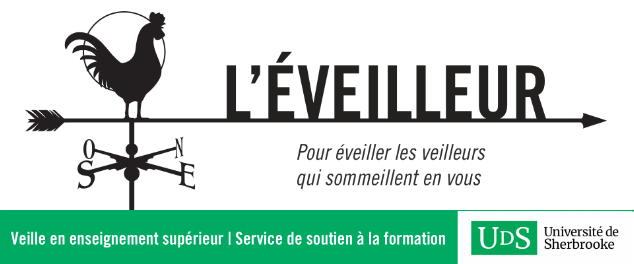La professeure Isabelle Boisclair, membre du comité éditorial du Perspectives SSF, me fait suivre un texte intéressant de Janet Beer, vice-chancellère de l’Université Oxford Brookes et présidente de la University Alliance, un groupe de 23 universités entrepreneuriales britanniques. L’auteure dénonce les conclusions du rapport Browne qui vise à créer davantage de compétition entre les universités et à placer les étudiants dans le rôle de « consommateurs » choisissant le meilleur « produit » académique.
Pour la professeure Beer, les universités britanniques devraient plutôt chercher à faire des étudiants des « co-créateurs » de leurs programmes d’études :
« …I argued that if we are serious about putting students at the heart of the system we would need to look beyond this consumerist approach. […] The relationship that students must have with the University, through its professionals, is that of co-creator – not the much contested term, consumer – if they are to shape their own experience and derive as much benefit from higher education as possible.
Students look for all kinds of additional opportunities to enhance their academic achievements and it is the case that they increasingly value work experience, especially when that work experience is related to their area of study. […] We have the evidence that graduates are much more likely to get their first choice of job if they take up some of the rich opportunities – for study or work abroad, research based project work, volunteering, placement learning, leadership in teams or societies, language learning – which are a part of the University premium that distinguishes us from new, for profit entrants to the market. It is not a simple consumerist relationship – students have to be involved in the development of their programme of activities in and out of the classroom or library.
[…]Time spent in higher education is not all about employment but about acquiring the capacity for reinvention – of self, of society – in the broadest possible sense. It is about developing the capacity for rational argument, for well-founded research, for articulate and persuasive advocacy. But, equally as important is making the most of the opportunities on offer at university allowing students to develop to the full the potential for leading a substantial and well-rounded life (see examples on our student stories site) – an ambition to which we all aim to contribute and not one that can be reduced to a simple, consumer transaction. » [mes emphases]
J’ai immédiatement fait le lien avec le programme « Student as Producer » de la University of Lincoln (membre de la University Alliance) dont nous avions déjà parlé, à la notion de « coconspirateurs » numériques (Ito et al., 2010) et à la tendance british de formation dans les entreprises que nous rapportait Catherine.
Clairement, le monde universitaire britannique est en crise, ce qui l’oblige à revenir à l’essentiel. Il est tout de même intéressant de lire des universités entrepreneuriales militer pour une formation citoyenne qui passerait, selon elles, par de la formation plus proche de la pratique…
Source : Beer, Janet, « Students co-creator, not consumer ? », Alliance University Blog, 17 février 2012.






